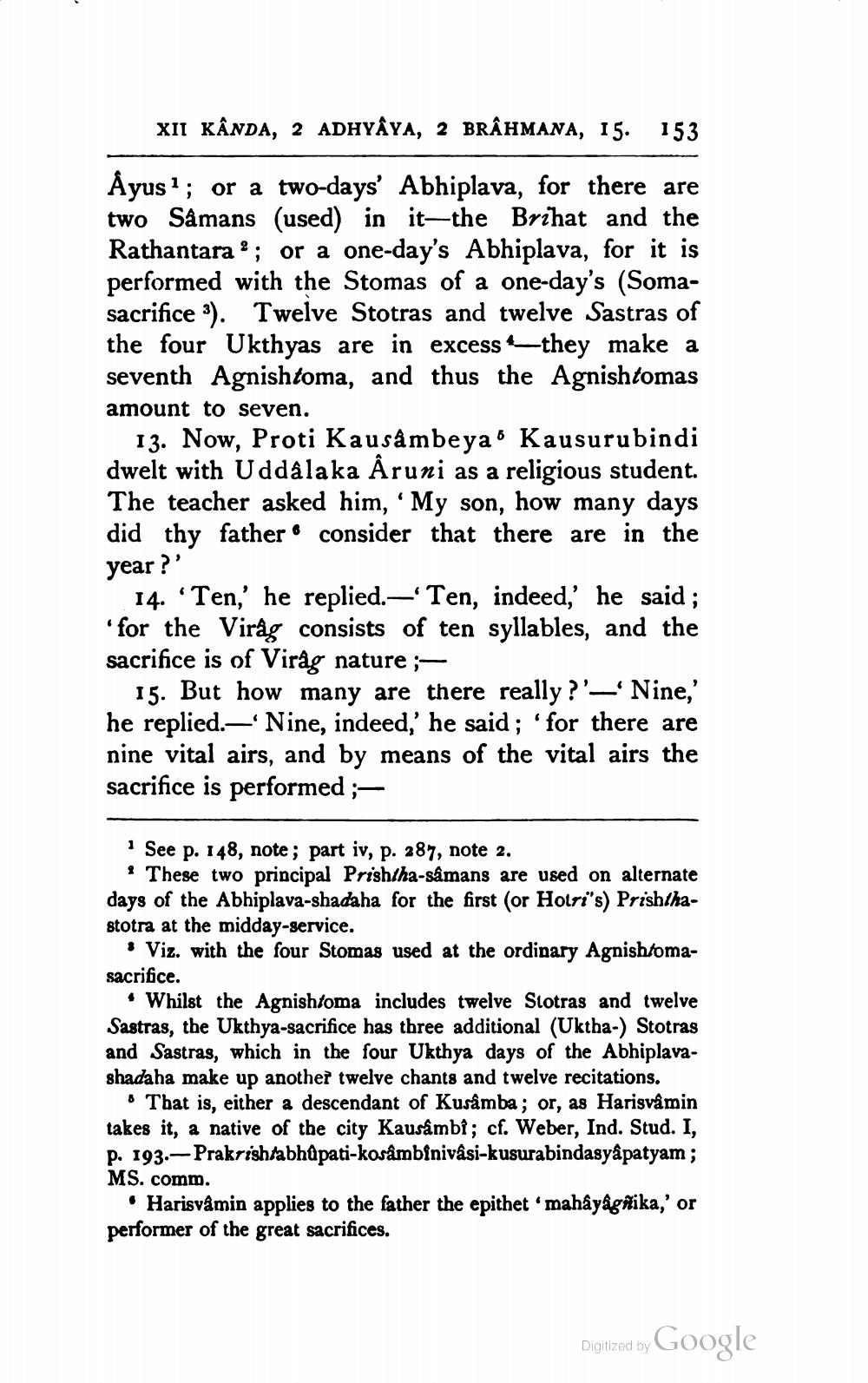________________
XII KÂNDA, 2 ADHYAYA, 2 BRÂHMANA, 15.
153
Åyus ? ; or a two-days' Abhiplava, for there are two Såmans (used) in it-the Brihat and the Rathantara?; or a one-day's Abhiplava, for it is performed with the Stomas of a one-day's (Somasacrifice 3). Twelve Stotras and twelve Sastras of the four Ukthyas are in excess they make a seventh Agnishtoma, and thus the Agnishtomas amount to seven.
13. Now, Proti Kausâmbeya Kausurubindi dwelt with Uddalaka Aruni as a religious student. The teacher asked him, “My son, how many days did thy father consider that there are in the year?'
14. “Ten,' he replied. — Ten, indeed,' he said ; 'for the Virág consists of ten syllables, and the sacrifice is of Virág nature ;
15. But how many are there really ?'—Nine,' he replied.—Nine, indeed,' he said ; 'for there are nine vital airs, and by means of the vital airs the sacrifice is performed ;
See p. 148, note; part iv, p. 287, note 2. ? These two principal Prishtha-samans are used on alternate days of the Abhiplava-shadaha for the first (or Holri's) Prishthastotra at the midday-service.
Viz. with the four Stomas used at the ordinary Agnishtomasacrifice.
• Whilst the Agnishtoma includes twelve Slotras and twelve Sastras, the Ukthya-sacrifice has three additional (Uktha Stotras and Sastras, which in the four Ukthya days of the Abhiplavashadaha make up another twelve chants and twelve recitations.
• That is, either a descendant of Kusâmba; or, as Harisvamin takes it, a native of the city Kausâmbi; cf. Weber, Ind. Stud. I, p. 193.- Prakrishtabhūpati-kosâmbinivâsi-kusurabindasyâpatyam ; MS. comm.
• Harisvåmin applies to the father the epithet 'mahayagãika,' or performer of the great sacrifices.
Digitized by Google




